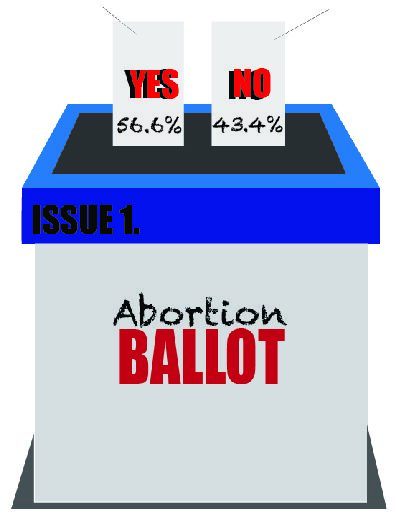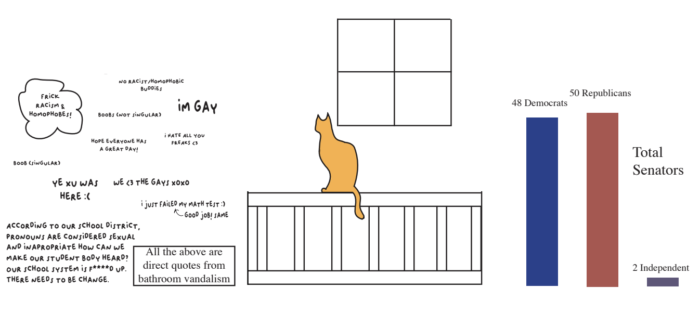
design: Sophie Rogers
We can all agree that Ticketmaster sucks. Sadly, it also happens to be the only place to get tickets for the biggest concerts and athletic events. Recently, multiple controversies have challenged the validity of the company’s reign over entertainment admission. Ticketmaster has finally come under fire after large groups have taken charge against the company, and I can’t wait for its downfall.
The latest controversy surrounding the billion-dollar company has to do with Taylor Swift’s Eras Tour in which millions of fans failed to obtain tickets. While I happily acquired mine, it’s no doubt that the more than two million tickets allowed to be sold during the presale were a large reason for the complete cancellation of general admission tickets, according to CNN. While mistakes can happen, it’s completely unjustifiable for a company as large as Ticketmaster to fail in their one job—selling tickets.
Many people have finally acknowledged this issue with political figures such as AOC condemning Ticketmaster’s economic dominance through Twitter. According to Rolling Stone, multiple class-action lawsuits have also arisen in retaliation to the company’s unfair market values.
At the business’ core, Ticketmaster is a monopoly. According to The New York Times, Ticketmaster is merged with the parent company LiveNation, contributing to the corporation’s chokehold on ticket sales. While a perfect story of American capitalism, the authority Ticketmaster has is harmful to the individual; Ticketmaster can employ rules and price changes at its own will with little ability for customers to request changes. This system is dangerous, and policies must be put in place to prevent this structure from continuing.
Just one of the controversial policies in place is dynamic pricing. According to USA Today, the technique adjusts the pricing of tickets based on demand, causing massive price spikes for popular events. The point of this implementation is to increase accessibility to tickets for customers. Though as usual, Ticketmaster lied.
The only goal of the approach is to increase ticket prices for more popular shows, thus forcing customers to take more out of their pocket. Admissions to large concerts and athletic events become extremely more difficult, and there’s very little anyone can do to change that.
Another problematic aspect comes with the unreasonably large service fees associated with tickets. When buying my tickets for Swift’s upcoming tour, I paid almost $50 fees—about a third of the ticket price. This is after waiting in a queue for hours only to be able to purchase seats in the back of the stadium.
Tickets for the now-irrelevant Stevie Nicks and Billy Joel forced fees of almost $100. For such extremely poor-quality service, it makes little sense why I would be paying so much for a corporation’s profit.
Resellers pose an additional complication in ticket purchasing. Through Ticketmaster, one can buy multiple tickets at retail prices and then later sell them for prices as high as desired. After the presale for Swift’s tour, tickets originally priced less than $500 were put back for sale at thousands of dollars according to the Ticketmaster website. These profits go straight to the reseller and Ticketmaster. The tickets that were supposed to be given to “verified fans” are now in the hands of old, single men living in their mom’s basement.
The apology put out by Ticketmaster following the Swift controversy is fake and unapologetic. I can sympathize with someone working for a check—I get the hustle. But what I won’t do is forgive a company that takes advantage of the world’s super fans. The schemes set by the company are simply classist, procuring tickets for only those that can afford the obscurely inflated prices.
This precedent of creating a monopoly out of a business is dangerous and is at risk of flooding into more necessary markets. We need to attack the contentious practices employed by Ticketmaster and initiate political reform to tackle future economic proprietaries.


